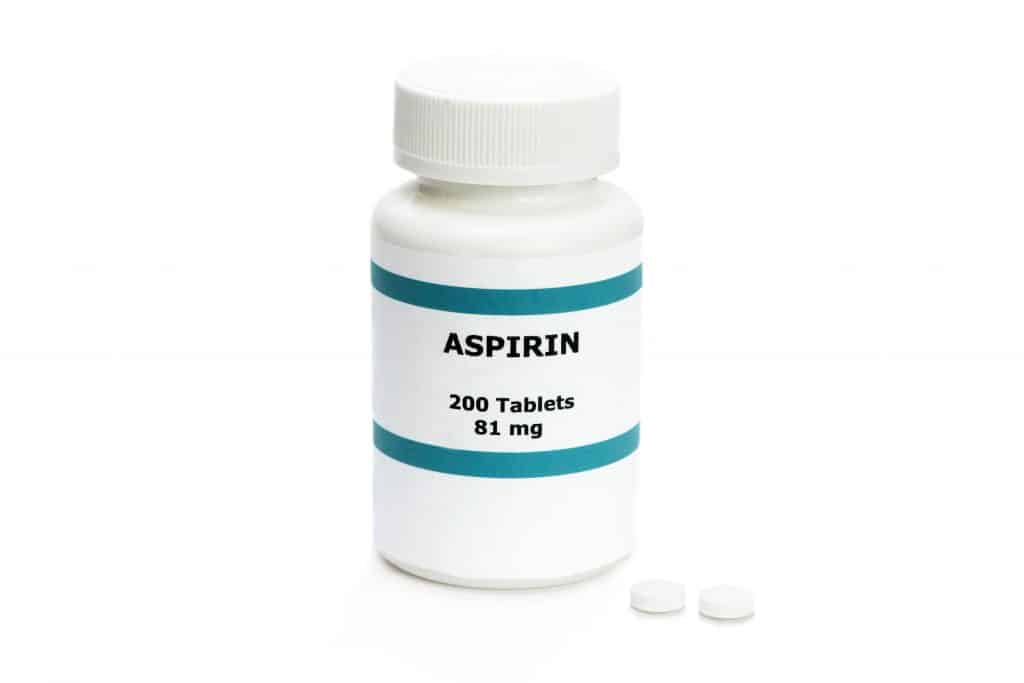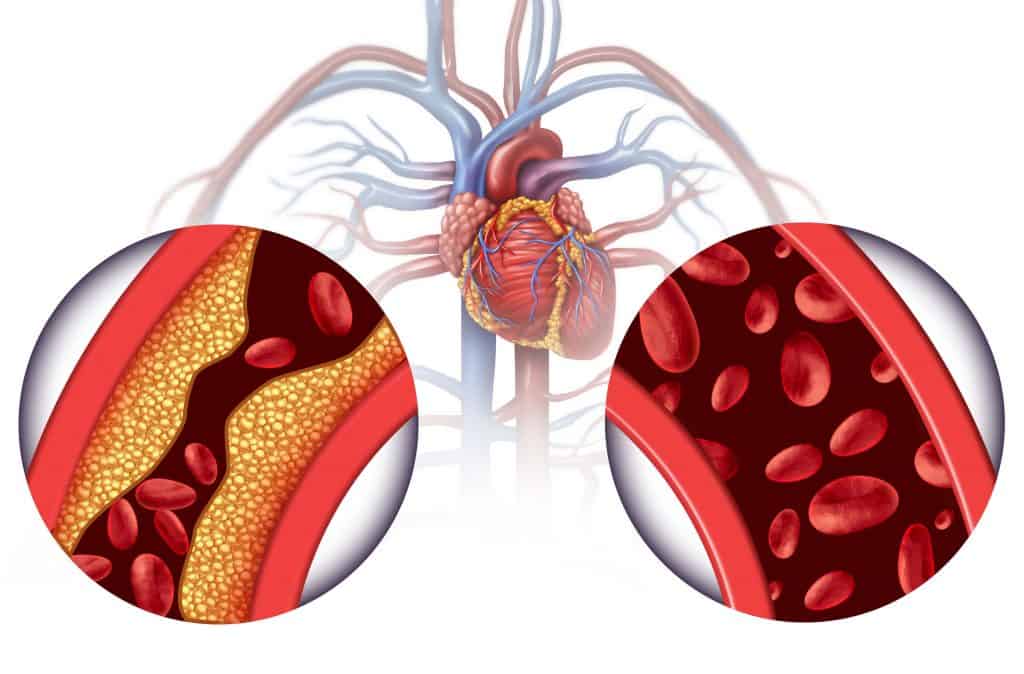Does Aspirin Help with Cholesterol? This Is How Aspirin Helps
Posted by Prescription Hope - See Editorial Guidelines (Last Updated On: Mon Jul 10 2023)
Many people take aspirin, and many doctors even prescribe it before or after serious heart conditions. Aspirin also helps with other conditions too, such as inflammatory issues. But does aspirin help with cholesterol too?
We’re going to take a closer look at aspirin and help you understand why it may help, but not directly. Starting with a quick summary…
Does aspirin help with cholesterol? Aspirin indirectly helps with cholesterol-related conditions. Aspirin doesn’t necessarily reduce cholesterol levels but does help in managing and preventing high cholesterol-induced serious conditions like heart attack and stroke. The effectiveness of aspirin treating cholesterol-induced conditions ranges from 20-30%.

That is a quick summary response. However, there is more to consider before going ahead and taking your aspirin. So let’s get into more details.
Things to consider before following these guidelines

The potential for aspirin in helping cholesterol is not officially accepted or even proven. The context of aspirin helping cholesterol varies based on a number of factors.
Even the positive aspects of how aspirin may be helping cholesterol levels are not 100% scientifically proven or accepted.
So, before you take aspirin to help with cholesterol – or come to the judgment that it can help with cholesterol, be sure to consult your healthcare provider.
This is important, as the dosage can also have an impact on how aspirin can help cholesterol.
Aspirin can also interact with many drugs.
Severe interactions can even result in the risk of stomach bleeding. So, if you’re taking medications for other health conditions, you must seek medical advice from your healthcare provider.
Overview of Cholesterol
Cholesterol is a waxy substance that your body needs in healthy amounts to build cells and make vitamins and other hormones.
When your cholesterol goes above the healthy limit, it can put you at an increased risk of other health conditions, such as heart disease.
Causes of high cholesterol:
- Unhealthy diet, such as eating bad fats (saturated and trans-fat). Fried and processed foods, chocolate, dairy products, and baked goods are examples of foods containing unhealthy fats.
- A sedentary lifestyle where individuals do not get enough exercise. This can decrease the good cholesterol (HDL) in your body.
- Smoking, which also lowers HDL and raises LDL (bad cholesterol).
Oils like palm oil, coconut oil, and palm kernel oil also have saturated fats, increasing your cholesterol levels.
So, if these factors are prevalent in your life, then considering making some lifestyle changes.
How does aspirin help with cholesterol?
To provide some background, aspirin is also known as acetylsalicylic acid.
It’s primarily used for reducing pain, fever, and inflammation. Some inflammatory conditions to which aspirin is prescribed include Kawasaki disease, pericarditis, and rheumatic fever.
Aspirin is also given shortly after a heart attack or stroke as it reduces further heart-related risks.
As part of the answer to “does aspirin help with cholesterol,” we should emphasize that aspirin is seen to aid in reducing the effects of cholesterol more than actually reducing the cholesterol levels directly.
By this, we mean that studies are unsure if aspirin reduces cholesterol levels but are confident that it has effects in helping control the health conditions that high cholesterol can lead to.
It’s important to emphasize here is that, whether or not aspirin can help with cholesterol – you certainly cannot depend on aspirin alone to control cholesterol levels.
Meaning, even if aspirin can help with cholesterol, you need to take appropriate measures with your diet and lifestyle to reduce cholesterol levels effectively. A diet adjustment is expected even if you take cholesterol medications.
There are also other factors at work here too…

Cholesterol and other substances
High cholesterol levels can join with other substances to form deposits, called plaque, inside the arteries. Plaque buildup over time can harden and narrow arteries, eventually blocking the artery altogether if it is not treated.
Plaque buildup in the arteries is a condition known as atherosclerosis. Aspirin can help reduce the growth of cholesterol-induced atherosclerosis.
Here’s an a more in-depth breakdown of both atherosclerosis and plaque.
Atherosclerosis
The severity of this condition can lead to serious health conditions – such as heart attack, stroke, and even death. This is why high cholesterol is often linked with increasing the risk for heart conditions.
Also, aspirin helps with cholesterol by preventing it from exacerbating the condition of atherosclerosis.
This is because aspirin prevents blood clots from forming, thereby preventing the effects of atherosclerosis from becoming more severe.
If you’re already taking medications for heart conditions, then you may be able to save money through Prescription Hope. Create an account and find out if you are eligible to pay just $60.00 a month through Prescription Hope’s medication access service for each of your medications.
Plaque
As plaque (fatty deposits) begin to buildup in the arteries, blood flow can be severely reduced.
Reduced blood flow can decrease the amount of oxygen and nutrients supplies to organs throughout the body.

Plaque can either partially or fully block various sized arteries in the heart, brain, pelvis, legs, arms, and kidneys. Ultimately, this can lead to:
- Coronary heart disease
- Angina (chest pain)
- Carotid artery disease
- Peripheral artery disease
- Chronic kidney disease
Aspirin may help in this case by preventing blood clots from forming because of its blood-thinning characteristics.
Blood-thinning is a process where you’re body’s natural mechanism to clot blood is slowed.
As you can see, aspirin helps with cholesterol in a more indirect approach to prevent or manage health conditions that can be triggered by high cholesterol.
High cholesterol is often related to the risk of heart or cardiovascular health conditions. It’s because of these reasons why doctors prescribe aspirin for heart conditions.
Is aspirin effective for treating cholesterol-related conditions?
For those who have high cholesterol and experienced heart attacks or certain forms of stroke, it’s effective to have at least a daily low dose of 81 mg of aspirin.
This is believed to help lower repeat episodes of some serious conditions. However, the same effect to prevent a first heart attack or stroke because of high cholesterol is more controversial.
According to reviews, aspirin reducing the cholesterol-induced clumping and aggregation of blood platelets has proven to lower the risk of heart attack by 20-30% when taken daily.
In contrast, 60% of patients with high cholesterol levels still experience platelet aggregation despite taking aspirin. This means 60% of patients are at high risk for heart attack.
Apart from this, experts say that although they prescribe aspirin for patients with heart conditions – they don’t measure the effectiveness.
This demonstrates that aspirin may not always work well for people with high cholesterol.
In regard to aspirin’s effect on cholesterol, we can only state that aspirin may not necessarily directly reduce cholesterol, but it has the potential to help treat cholesterol-related conditions.

Closing thoughts
We hope this has provided a helpful guide on the question, does aspirin help with cholesterol. As we always recommend, consult your healthcare provider before making any changes to your treatment regimen or questions about your specific condition. Contact us today, and learn about Prescription Hope’s medication access if you’re paying more than $60.00 a month through Prescription Hope’s medication access service for any of your medications.

